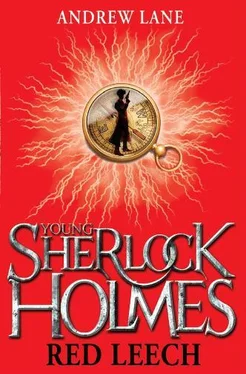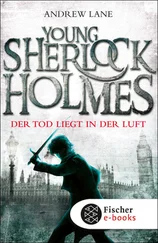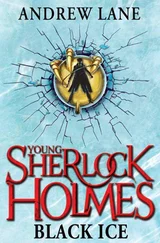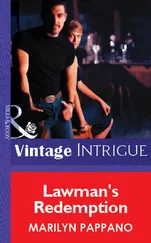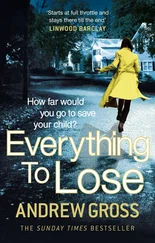“You’ve not helped; you’ve actively hindered,” Crowe exploded. “This is a business for grown-ups. You ain’t got the skills or the knowledge to do it properly”
Part of Sherlock’s mind — a dispassionate, detached part — noticed that Amyus Crowe’s accent became thicker when he was angry, but the greater part was cringing at the knowledge that he had let down two of the three men whose opinion mattered most to him in the world. He opened his mouth to say “Sorry”, but his mouth was dry and he couldn’t get the word out.
The expression on Mycroft’s face was of disappointment rather than anger. “Go to your room, Sherlock,” he said. “We will call for you when —” he glanced at Crowe — “we can be more assured of a calmer discussion. Now go.”
Feeling his cheeks burning with shame, Sherlock turned around and walked out of the library.
The hall was stifling in the afternoon heat. He stopped for a moment, head hung, letting the feelings drain away from him and waiting until he felt he could face the long climb up to his room. His head hurt.
“No longer the favoured child?” said a voice from the shadows.
Sherlock glanced up as Mrs Eglantine glided out from the cubbyhole beneath the stairs. She was smiling nastily. Her black crinoline dress moved stiffly around her, and the sound of it brushing against the floor was like someone whispering in a distant room.
“How is it that you manage to survive in this house, being so rude to everyone?” he asked mildly, knowing that he had nothing to lose. Things were already as bad as they were going to get, that day. “I would have fired you years ago, if I was in charge.”
She seemed surprised by his reaction. The smile seemed to slip from her face. “You have no power here,” she snapped. “ I have the power in this house.”
“Only until Uncle Sherrinford dies,” Sherlock pointed out. “Neither he nor Aunt Anna has any children, so possession of the house will pass to my father’s side of the family. And then you need to step very carefully, Mrs Eglantine.”
Before she could say anything in response, he headed up the stairs to his room. Looking down from the first-floor landing, he could still see her standing there.
He lay down on his bed, flung an arm across his eyes, and let the whirl of thoughts in his head take him over. What had he been thinking? Mycroft and Crowe had both warned him off from helping. What exactly was it that he had been trying to prove?
He must have drifted into a doze after a while, because the light in the room seemed to suddenly change, and he had pins and needles in his arm from where it was awkwardly crossing his face. He got up and slowly went downstairs; more to find food than for any other reason. He was suddenly ravenous.
The maids were setting the table for dinner. Mycroft was just emerging from the library. There was no sign of Amyus Crowe.
Mycroft nodded at Sherlock. “Feeling better?” he asked.
“Not really. I did something stupid.”
“Not for the first time, and probably not for the last time. Just make sure you learn a lesson from this. Making a mistake is excusable, the first time. After that it becomes tedious.”
One of the maids emerged from the dining room with a small gong in a frame. Without looking at Mycroft or Sherlock she banged the gong once, loudly, and then retreated back into the dining room again.
“Shall we?” Mycroft asked.
Within a few moments they had been joined by Sherrinford and Anna Holmes. Mycroft spent most of dinner discussing the accuracy of the Latin translation of the Greek translation of the Hebrew and Aramaic books of the Old Testament. Aunt Anna spent most of the time talking to Sherrinford and Mycroft, ignorant of the fact that they were already talking to each other, although from some sense of gallantry Mycroft would turn around every so often and answer one of the questions that passed by in her continuous monologue. Sherlock spent his time eating, and avoiding the stare of Mrs Eglantine, who glared at him from a position by the windows.
After dinner, Sherrinford and Anna escorted Mycroft to the front steps to say goodbye.
“Your Greek is fluent, and your Latin is particularly well constructed,” Sherrinford said, apparently the highest praise he could think of. “And I have enjoyed our discourse. Your knowledge of the Old Testament is lacking, but you have made some surprising deductions already, based on what I have told you. I will need to think long and hard about what you have suggested concerning the early days of the Church. Please visit us again soon.”
Aunt Anna surprised everyone by stepping forward and placing a hand on Mycroft’s arm. “You are always welcome here,” she said. “I... regret... the animosity that has split the family. I wish it could be otherwise.”
“Your kindness is a force that could overcome all adversities,” Mycroft replied gently. “And the charity you have shown by looking after young Sherlock is a humbling example to us all. Consider the rift more than repaired, but eradicated.” He cast a glance into the shadows of the hall, where Sherlock thought he could just make out a figure, dressed in black, watching them. Mycroft lowered his voice. “But while a particular person still has influence within this house, I suspect I will never feel quite as accepted as you would wish me to feel.”
Anna looked away. Sherlock thought he could see the gleam of tears in her eyes. “We are where we are,” she said cryptically. “And we do what we do.”
Mycroft stepped back. “I will take my leave of you,” he said, “with many thanks. Might I presume upon your good natures one last time, and ask that Sherlock accompanies me to the station. The carriage can bring him back afterwards.”
“Of course,” Sherrinford said, waving a hand airily.
As the carriage took them out of the grounds of the Manor and on to the road, Sherlock looked back. There were three figures on the steps now — his aunt, his uncle and Mrs Eglantine. And either by accident or design, Mrs Eglantine was standing on the highest step, towering over her employers.
“You still want to talk about what happened today,” Sherlock guessed as the carriage bounced over potholes and stones.
“Of course. We will be stopping at Mr Crowe’s cottage. There is still much to discuss.”
The carriage rattled through the landscape.
Sherlock could still feel an ache in his scalp where the scarred lunatic had grabbed him by the hair and dragged him into the house. He reached up and surreptitiously tugged at a lock of his hair, just to check that it wasn’t going to come out. The sudden pain made tears spring out in his eyes, but the hair stayed where it was. Thank God.
Within ten minutes the carriage was slowing down, and Sherlock could see the loaf-like shape of a thatched roof rising above a clump of bushes.
“Come,” said Mycroft as the carriage stopped outside a gate in a dry stone wall. “Mr Crowe is expecting us.”
The cottage door was open. Mycroft knocked, and then entered without waiting for an answer.
Amyus Crowe was sitting in a chair by the hearth, his massive form dwarfing the wooden frame. He was smoking a cigar. “Mr Holmes,” he said equitably, nodding.
“Mr Crowe,” Mycroft responded. “Thank you for seeing us.”
“Please, sit yourselves down.”
Mycroft chose the only other comfortable chair in the room. Sherlock sat on a stool near the cold, empty fireplace and looked around. Amyus Crowe’s cottage was as untidy as he remembered. A pile of letters was fastened to the wooden mantelpiece with a knife, and a lone slipper on the floor beside the fireplace contained a bunch of cigars, sticking upward in various directions. And there was a map of the local area attached to a wall with drawing pins. Circles and lines had been drawn on it in some apparently random pattern. Some of the lines continued off on to the plaster of the wall.
Читать дальше
